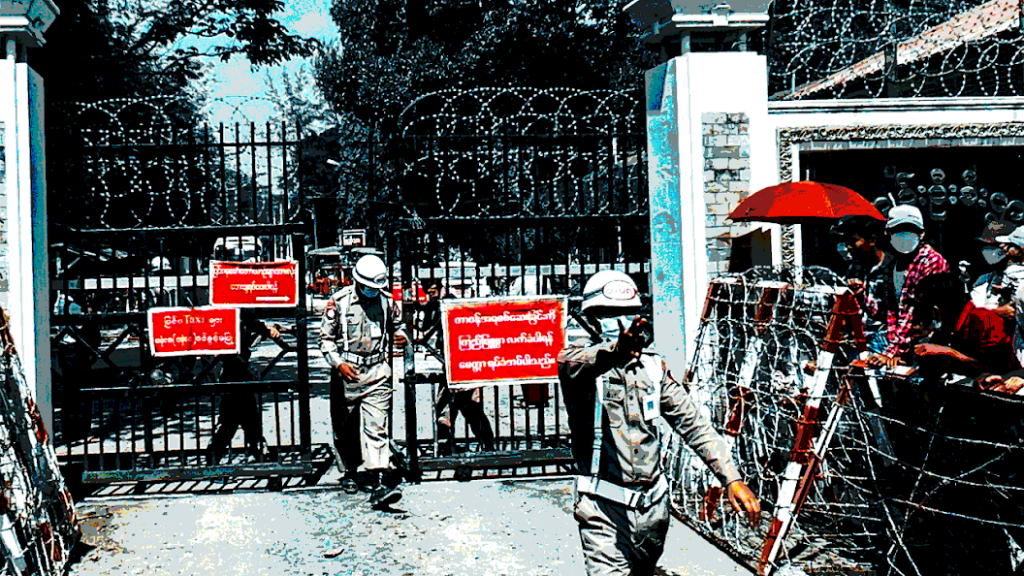Myanmar Spring Chronicle – October 22
MoeMaKa, October 23, 2023
Lifting a 3-Year Ban on Prison Visits: Ongoing Human Rights Abuses in Myanmar Prisons
In March 2020, amid the global declaration of the Covid-19 pandemic, Myanmar implemented measures, including curfews and travel restrictions, to curb the virus’s spread. Notably, visits to prisons were banned to prevent potential Covid-19 transmissions among convicts and those under trial. Despite a decline in the risk of Covid-19 infections since 2022, the military council, which seized power in a coup, persisted with the ban as a form of psychological abuse, particularly targeting individuals detained for political reasons. After more than three and a half years, reports now emerge that the ban on prison visits will be lifted this October. During this prolonged restriction, an explosion at the parcel reception counter for prison inmates in Insein prison resulted in casualties, including prison staff and the mother of a well-known political inmate.
Denying prisoners and their families the opportunity to meet has been just one of the numerous human rights violations perpetrated under the military council’s regime. This ban not only constitutes a violation of human rights but also inflicts mental and physical abuse on the inmates and their families.
The decision to lift the ban comes over a month after the appointment of Lt. Gen. Yar Pyae, who replaced Lt. Gen. Soe Htut, the former Home Affairs Minister appointed during the NLD regime in February 2020. Prior to the military coup, there had been some improvements in prison conditions based on inmates’ statements, the prison manual of the Department of Prisons, and a general human rights perspective, spanning nearly a decade. However, conditions deteriorated markedly within months of the coup, surpassing the situation before 2011. Incidents of beatings and torture leading to death, the prohibition of prison visits citing infectious diseases, and the deaths of inmates denied admission to external hospitals are ongoing issues under the military council.
The military’s presence has intensified in prison staff leadership, with many officers transferred from the military to civilian roles instead of experienced prison department employees becoming wardens. Prison riots, escapes, and protests have become frequent since the coup, resulting in inmate deaths on multiple occasions. Recently, inmates performing chores outside Dawei Prison killed two prison staff members, escaping to areas controlled by anti-military council armed groups. Additionally, in recent months, individuals convicted of political crimes have been shot and killed during prison transfers in Taungoo, Daik-U prisons in Bago Region, Magway prisons, and Mandalay prisons. Despite reports from family members of the deceased, detailed information on the incidents, including the identities of the perpetrators, remains scarce.
The aforementioned situation highlights ongoing rights violations and loss of life within prisons and police stations, which have escalated since the military coup. The ban on prison visits made it challenging to ascertain the conditions inside these facilities, and numerous incidents left families unsure about the well-being of their incarcerated relatives. The allowance of prison visits raises hope for improved transparency and information regarding the situation within Myanmar’s prisons.

